TEN DAYS WITH THE CHINESE MYSTERY, XU FANG
Original Article
by Valery Mamonov, Ph.D.
Xu Fang, thirty-one, of China has not eaten in the last thirteen years. The December 1996 issue of the Japanese magazine Borderland, based on a report by Pung Chung, published an article (in Japanese) about her mysterious ability to stay healthy without food for nine years (at the time of publication). Fuji TV of Japan showed her in its program after the TV team stayed with her for three days, in an attempt to prove whether or not she eats. The Chinese best-selling author, Ka Un Ro, wrote about her in a few of his books. I first heard about Xu Fang from a Japanese family, Jiro and Masako Tokawa, a retired noble couple who invited me to stay in their home for two months at the beginning of 1998. They helped me get in touch with Fuji TV and Mr. Shirakawa sent me an article and videotape about Xu Fang.
After having learned more about Xu Fang from these materials, I was eager to meet a living, non-eating human being. There are cases in history in which a few people, most deeply religious, abstained from food for years and even decades. Paramahansa Yogananda interviewed two of them--Theresa Neumann of Germany and Giri Bala of India--and wrote about them in his book, Autobiography of a Yogi. However, these non-eaters were no longer alive; therefore, I was very excited to meet with Xu Fang. Mr. Shirakawa from Fuji TV gave me Xu Fang's fax number and I sent her a letter with general information about myself. I also explained that I am conducting research about long-living people and requested a meeting with her. She promptly replied in a fax letter, dated February 19, 1998, and quoted as follows:
I was very happy to receive this letter. I started preparations for a visit, acquiring a Chinese visa and buying an airplane ticket to Beijing. In the article I read about Xu Fang, it stated that she does not eat, yet she likes to smell apples. As a gift, I wanted to bring her Japanese apples. There were very beautiful apples in Tokyo, but in the beginning of March many types of apples, harvested about a half-year ago, had already lost most of their fragrance. Jiro Tokawa went with me to a specialty shop, whose owner is an expert on apples. He explained that there is only one kind that still maintains a distinct smell. He ordered a few of those apples and in a couple of days they were delivered to me. They were green in color, quite big, and smelled very nice.
I exchanged faxes with the mother of Xu Fang’s boyfriend, Mrs. Huo Huiying, who lives in Shanghai and who helped me arrange my meeting with Xu Fang. She booked me a good, inexpensive hotel and informed me that Xu Fang and her friends would meet me at the airport on my arrival in Beijing.
Arrival; March 6, 1998; Friday
My flight was quite late, not arriving until about 9 p.m., and I worried that this was too late for Xu Fang to come to the airport. I expected her and perhaps one of her friends, but I was surprised to find six people awaiting me: Xu Fang; her younger sister Xu Fung; Ryu Sin Tyu, a researcher who has been studying Xu Fang; his wife; their friend; and the driver. I greeted them and thanked them for coming to meet me.
In the car on the way to Beijing, I sat beside Xu Fang. She was wearing white jeans and a white jacket, looking slim and pretty. Her sister and Ryu were sitting in front of us and his wife and their friend were behind us. Xu Fang’s sister graduated from the Russian University and is fluent in Russian. She now works with Russians in an export-import company and they call her by a Russian name, Nadya. She assisted us as an interpreter. Ryu asked me about my work and I told him about my research on life extension. Speaking about extraordinary people and cases, they mentioned a Chinese woman who died long ago, but her body remains fresh, without any signs of decay. They said that if I were interested, they would show me the body. Nadya also told me that recently Xu Fang started to eat a little--an ice cream once a week or so. The reason was that she just wants to be like others.
After about a half-hour drive, we arrived at the hotel and Xu Fang signed the guest register for me in Chinese. We gathered in my room and talked for about a half-hour. First, Xu Fang asked me the purpose of my visit. I told her I did not come to verify whether or not she eats; rather, I came to meet her, talk to her, and write about her. I told her my interest in her is purely private, and nobody supports me. I also hoped that the results of my research on long-living people might be interesting to Xu Fang and her friends. “If so, I’ll be feeling more relaxed,” said Xu Fang.
I had some souvenirs from Japan that I gave to Xu Fang and the others: the apples, konnyaku jelly, umeboshi (pickled plums), and an electronic English-Japanese dictionary (speaking edition). She smelled an apple and said it was good. The researcher, Dr. Ryu, said there is another Chinese woman who has eaten nothing for a long time. He also mentioned that he included some data about Xu Fang in his two books and that he would show them to me next time. He also compiled an entire book about her, but it is not published yet. I asked whether there were English publications about her--they replied no.
I touched Xu Fang’s hand; it was warm--warmer than mine. Her sister’s hand was similarly warm, and they said that all their family has warm hands. As Nadya said, Xu Fang does not wear many warm clothes in winter--she does not feel the cold much. Explaining her body warmth, Dr. Ryu said that the source of her energy is in her kindness. Trying to find a possible physiological explanation, I asked about her rate of breathing. Dr. Ryu replied that she does not need to breathe at all! But she was definitely breathing and, seeing my surprised expression, Dr. Ryu said that she can breathe with her skin. I mentioned my alternate dry fasting, when I lost about 18 pounds (8 kilograms) of my weight. He said that if I continued the fast longer, I could probably increase my weight again, after the primary loss of it. To fast for a long time, I must learn to breathe through my skin, he added.
No food, now no air--it’s a real mystery. What about water? She drinks some water when she is out with her friends. Sometimes, especially when it rains, she goes without water for days. She drinks more water when she stays in Beijing, where the air is dry, and in the summer when it is hot. However, in Shanghai--with its humid air--she drinks a little and sometimes not at all. She occasionally drinks mineral water too. Her blood type is A; her sister’s is B. I showed her the chart of foods for blood type A, in which cola is listed as a drink to avoid; she said she feels bad after drinking cola.
Dr. Ryu, his wife, and their friend left around 11 p.m., but Xu Fang and her sister stayed that night at the hotel, in the room next to mine. So, the two sisters and I continued to talk until midnight. It was time to sleep and we talked about dreams for a while. Xu Fang dreamt until the age of eighteen, when she was still eating. However, since her non-eating state began, she cannot recall her dreams. Perhaps Xu Fang’s non-dreaming is a way to not expend the energy that is necessary for her daily activities. Nadya said she had a dream the night before that water burst out of the ground like a fountain. I later found in the Encyclopedia of Dreams under the word “fountain” that if a young woman sees a sparkling fountain in the moonlight, it signifies ill-advised pleasure that may result in a desertion. I regret that I did not warn her then about a possible disappointment, but did she see her fountain in the moonlight? Next time I meet Nadya, I’ll ask her.
Xu Fang likes to meditate and in her meditations she sees Buddha in her third-eye region. She was never taught about Buddha because her parents are communists and the children were brought up in the atheistic way. After one year in her non-eating state, she began to tell her two sisters and brother about Buddha and God. She was enthusiastic when I mentioned exercises that I wanted to exchange with her. I proposed to take photographs of her exercising and to put them in my book; she agreed. We all said good night and the sisters went to their room.
First Day; March 7; Saturday
In the morning, Xu Fang and her sister came to my room. After a few minutes, Nadya said, “See you later,” and went to her job. Xu Fang told me that she wanted to introduce me to her friends. We took a taxi and, after 15 minutes, arrived at her office, a small one-room apartment that she was renting in the Chinese Academy of Culture building. This apartment is her office as well as where she lives with her boyfriend and business companion, twenty-nine-year-old Le Jun Luo.
When we arrived, there were five people waiting for us: her boyfriend Luo and a family--Yue Hui Xiang, his wife Wei Bo Sieng, their daughter Yue Xin, and her husband Lu Huan. After brief greetings, they said everyone was hungry, so we went to a nearby restaurant for lunch. It was served in a separate room where we sat around a big round table with a rotating part made of glass, the type I have seen in many eateries in Singapore. Three or four waitresses served the food for us. The number of dishes was enormous: fried meat, duck, and tofu; steamed carp fish; fish-head soup; many kinds of stewed and fried vegetables; and rice. Everything was delicious, but Xu Fang drank only a small cup of leaf tea--a type of green tea, light yellow in color.
Communication among the group was difficult because I do not speak Chinese and only Xu Fang could speak a word in English. She had a hard time interpreting among her friends and me. From what I could understand, some of them worked for the military and the younger girl occasionally helped Xu Fang in her business of designing and selling fashion garments.
All the members of this family were also her spiritual followers. They came to Xu Fang's place to study the teachings of Buddha. They usually prayed before a small Buddha statue that had been placed on the windowsill because of the lack of space. Near the statue of Buddha were oranges and apples, including one that I brought from Japan. Xu Fang and Luo were preparing to move from Beijing to Shanghai, where his parents live. Their small living room/office with a computer in one corner was overloaded with clothes piled everywhere. Her friends perceived Xu Fang as above ordinary people--like a goddess--and they worshipped a picture of her placed on the piano in the room. Xu Fang told me that she plays the piano a little.

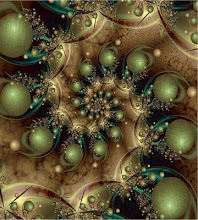
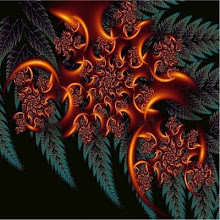

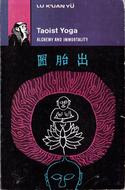

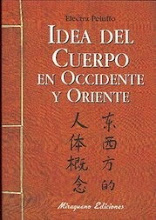

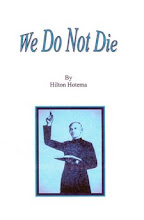
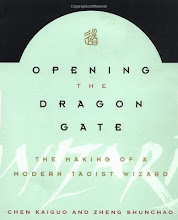


No hay comentarios:
Publicar un comentario